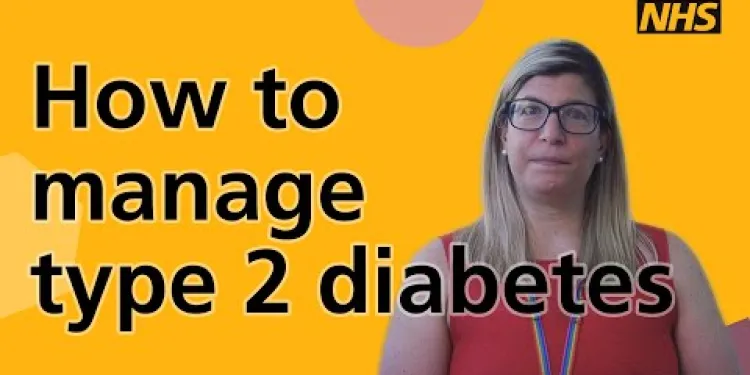
Find Help
More Items From Ergsy search
-

How can stress management affect cortisol levels?
Relevance: 100%
-

How do cortisol levels differ between acute and chronic stress?
Relevance: 85%
-

Can cortisol levels be measured?
Relevance: 76%
-

Can exercise influence cortisol levels?
Relevance: 75%
-

Can diet influence cortisol levels?
Relevance: 75%
-

How does cortisol affect the body's stress response?
Relevance: 72%
-

What can high levels of cortisol cause?
Relevance: 72%
-

Can cortisol levels impact mood and mental health?
Relevance: 72%
-

What can low levels of cortisol cause?
Relevance: 72%
-

What factors can influence cortisol levels?
Relevance: 72%
-

Are there any lifestyle changes that can help regulate cortisol levels?
Relevance: 70%
-

What is cortisol?
Relevance: 66%
-

What is the role of cortisol in metabolism?
Relevance: 61%
-

How is cortisol regulated in the body?
Relevance: 59%
-

What role does cortisol play in the body?
Relevance: 59%
-

Is there a connection between cortisol and the immune system?
Relevance: 58%
-

What is the relationship between cortisol and the circadian rhythm?
Relevance: 55%
-

What is the normal pattern of cortisol secretion throughout the day?
Relevance: 54%
-

Can stress management aid in menopause masking?
Relevance: 53%
-

Can stress affect my Type 2 Diabetes?
Relevance: 49%
-

Can stress trigger shingles?
Relevance: 44%
-

Can stress cause asthma symptoms?
Relevance: 41%
-

Can stress trigger psoriasis flare-ups?
Relevance: 41%
-

Coping with Stress and Anxiety
Relevance: 40%
-

Does stress affect tinnitus?
Relevance: 40%
-

Does stress impact gut health as we age?
Relevance: 39%
-

Can stress trigger shingles?
Relevance: 39%
-

Does stress contribute to nettle rash?
Relevance: 39%
-

Can stress cause high blood pressure?
Relevance: 38%
-

Can stress make Crohn's disease worse?
Relevance: 37%
-

How can carers manage stress while caring for someone with Alzheimer's?
Relevance: 37%
-

Can stress affect a pregnancy test result?
Relevance: 33%
-

Why is reducing aldosterone levels important?
Relevance: 32%
-

How to manage type 2 diabetes
Relevance: 32%
-

What is Cushing's syndrome?
Relevance: 31%
-

Pelvic health: stress urinary incontinence
Relevance: 30%
-

Can GLP-1 levels be measured?
Relevance: 28%
-

Can stress related to caffeine consumption affect blood pressure?
Relevance: 28%
-

Can lifestyle changes help manage tinnitus?
Relevance: 27%
-

How does Abiraterone affect hormone levels?
Relevance: 27%
Understanding Stress and Cortisol
Stress is a common experience in today's fast-paced world, often arising from various factors such as work, relationships, and health concerns. When faced with stress, the body responds by releasing cortisol, a hormone produced by the adrenal glands. Cortisol plays a crucial role in the body's "fight or flight" response, preparing an individual to deal with the stressor. However, prolonged exposure to high levels of cortisol can have negative effects on health, including increased risk for anxiety, depression, heart disease, and weight gain.
The Importance of Stress Management
Effective stress management techniques can help regulate and potentially reduce the levels of cortisol in the body. By managing stress, individuals can prevent the chronic activation of the stress response system and subsequently lower the risk of enduring high cortisol levels. Stress management encompasses a variety of strategies, including lifestyle changes, mindfulness practices, physical activity, and social support.
Mindfulness and Relaxation Techniques
Mindfulness and relaxation techniques like meditation, deep breathing exercises, and yoga have been shown to lower cortisol levels. These practices help individuals focus on the present moment and reduce the overactivity of the mind that often accompanies stress. Over time, regular practice can lead to long-term reductions in cortisol levels, promoting a sense of calm and wellbeing.
The Role of Physical Activity
Engaging in regular physical activity is another effective way to manage stress and control cortisol levels. Exercise, whether it be aerobic activities like running or more anaerobic forms such as strength training, helps in reducing tension and boosting the production of endorphins, chemicals in the brain that act as natural painkillers and mood elevators. Regular physical activity has also been proven to lower cortisol levels post-exercise, contributing to an overall improvement in mood and mental health.
The Impact of Lifestyle Changes
In addition to relaxation and physical activity, various lifestyle changes can aid in stress management and cortisol reduction. Prioritising sleep, maintaining a balanced diet, and limiting caffeine and alcohol intake can all contribute to better stress management. Adequate sleep is particularly important as lack of sleep can increase cortisol levels. A healthy diet rich in fruits, vegetables, and whole grains provides the necessary nutrients to support the body's stress response system.
The Benefits of Social Support
Lastly, having a strong social support system plays a significant role in managing stress. Spending time with friends and family, participating in community activities, and seeking support from loved ones can alleviate feelings of stress and promote a sense of belonging. This emotional support can lead to decreased cortisol production, thereby enhancing overall health and wellbeing.
Understanding Stress and Cortisol
Stress is when we feel worried or under pressure. This can happen because of work, family, or health problems. When we are stressed, our body makes a chemical called cortisol. This helps us to react quickly to danger. But too much cortisol over time can make us sick. It can cause problems like anxiety, sadness, heart problems, and gaining weight.
The Importance of Stress Management
It is important to learn how to deal with stress. This can help us lower cortisol levels in our body. Managing stress can stop our body from being in a constant "fight or flight" mode. There are different ways to handle stress, like changing some habits, practicing mindfulness, exercising, and getting support from friends.
Mindfulness and Relaxation Techniques
Doing activities like meditation, deep breathing, and yoga can help lower stress. These activities make us live in the moment and feel less worried. Over time, doing these activities regularly can make us feel calmer and happier.
The Role of Physical Activity
Exercise is a good way to handle stress and control cortisol. Activities like running or lifting weights can help us feel better. Exercise makes special chemicals in our brain that lift our mood and reduce pain. Regular exercise also lowers cortisol levels and improves mental health.
The Impact of Lifestyle Changes
Changing our lifestyle can help with stress. Sleeping well, eating healthy food, and drinking less caffeine and alcohol can reduce stress. Sleep is very important because not getting enough can raise cortisol levels. Eating lots of fruits, vegetables, and whole grains helps our bodies deal with stress better.
The Benefits of Social Support
Having friends and family around us helps manage stress. Spending time with loved ones, joining in community activities, and asking for help when needed makes us feel better. Good social support lowers cortisol and boosts our overall health and happiness.
Frequently Asked Questions
What is cortisol?
Cortisol is a hormone produced by the adrenal glands that plays a role in the body's stress response, metabolism, and immune function.
How does stress affect cortisol levels?
Stress triggers the release of cortisol from the adrenal glands, increasing its levels in the bloodstream to help the body manage the stressor.
What is stress management?
Stress management involves techniques and strategies to control and reduce stress levels, thereby improving mental and physical health.
Can stress management lower cortisol levels?
Yes, effective stress management techniques can help lower cortisol levels by reducing the body's stress response.
What stress management techniques affect cortisol levels?
Techniques such as meditation, deep breathing, regular physical exercise, and adequate sleep can help lower cortisol levels.
Does exercise influence cortisol levels?
Yes, regular exercise can help regulate cortisol levels and improve overall stress resilience, despite temporarily increasing cortisol during activity.
How does sleep affect cortisol levels?
Adequate sleep is crucial for regulating cortisol levels, as poor sleep can lead to increased stress and elevated cortisol.
Can mindfulness reduce cortisol levels?
Mindfulness practices like meditation and yoga can lower cortisol levels by enhancing relaxation and reducing stress.
What role does diet play in stress management and cortisol levels?
A balanced diet can support stress management and healthy cortisol levels, especially foods rich in omega-3 fatty acids and antioxidants.
How quickly can cortisol levels change with stress management?
Cortisol levels can begin to change relatively quickly with consistent stress management practices, but effects may vary among individuals.
Can chronic stress permanently affect cortisol levels?
Chronic stress can lead to consistently high cortisol levels, which may require sustained stress management interventions to normalize.
Is cortisol always bad for health?
Cortisol is essential for health and survival, but prolonged high levels due to chronic stress can have negative effects on health.
What are the health risks of high cortisol levels?
High cortisol levels can contribute to issues like weight gain, high blood pressure, sleep disturbances, and a weakened immune system.
Can therapy help in managing stress and cortisol levels?
Yes, therapy can provide tools and strategies to manage stress, which in turn can help regulate cortisol levels.
What is the impact of social support on stress and cortisol?
Strong social support can buffer stress and help stabilize cortisol levels by providing emotional support and reducing feelings of isolation.
How does time management affect stress and cortisol levels?
Effective time management can reduce stress by preventing overload, which helps to keep cortisol levels in check.
Can positive thinking influence cortisol levels?
Positive thinking and maintaining an optimistic outlook can help manage stress, subsequently affecting cortisol in a positive way.
Does chronic stress affect cortisol levels differently than acute stress?
Chronic stress often leads to sustained high cortisol levels, whereas acute stress causes temporary increases that typically resolve quickly.
Why is it important to maintain balanced cortisol levels?
Balanced cortisol levels are important for regulating metabolism, immune function, and overall stress resilience, preventing health issues.
Can relaxation techniques like breathing exercises impact cortisol?
Yes, relaxation techniques such as breathing exercises can reduce the stress response and lower cortisol levels.
What is cortisol?
Cortisol is a chemical in your body. It helps you feel ready and awake.
If you are feeling stressed, your body makes more cortisol.
To feel calm, you can try deep breathing or listening to music.
Cortisol is a chemical made by the adrenal glands in our body. It helps us deal with stress, use food for energy, and keep us healthy.
How does stress change cortisol levels?
Stress is when you feel worried or nervous. It can make your body do different things.
When you are stressed, your body makes more of a special chemical called cortisol.
Too much cortisol can make you feel tired or sick.
It is important to relax and take deep breaths. This can help you feel better.
You can try talking to someone or doing fun activities to help with stress.
When you feel stressed, your body makes something called cortisol. It comes from your adrenal glands. Cortisol goes into your blood and helps your body deal with stress.
What is stress management?
Stress management means learning how to feel better when you are worried or upset. It helps you calm down and feel happy again. You can do things like:
- Take deep breaths
- Talk to someone you trust
- Take a walk or do some exercise
- Listen to music
- Draw or color
These activities can help you relax and feel good. It's important to find what works for you so you can manage stress better. Remember, it's okay to ask for help if you need it.
Stress management means finding ways to handle and lower stress. This helps you feel better in your mind and body.
Can stress management help lower stress hormones?
Yes, managing stress well can help lower the stress hormone, called cortisol, in your body.
How can you lower stress and feel better?
Here are some easy ways to help you feel less stressed:
- Take deep breaths. Breathe in and out slowly to calm down.
- Do some exercise. Even a short walk can help you feel better.
- Listen to your favorite music. It can make you happy and relaxed.
- Try talking to a friend. Sharing your feelings can help.
- Draw or write in a journal. Expressing yourself can be soothing.
- Use apps or videos that help with relaxation, like meditation or breathing exercises.
These things can help your body feel calm and lower stress. You can try them and see which ones work best for you.
Try these things to feel less stressed:
- Meditation: Sit quietly and think of calm things.
- Deep Breathing: Breathe in slowly through your nose and out through your mouth.
- Exercise: Move your body with fun activities like walking or playing.
- Sleep: Make sure you get enough rest at night.
Does exercise change cortisol levels?
Yes, doing exercise regularly can help control stress hormones and make you better at handling stress, even if exercise makes stress hormones go up for a little while.
How does sleep change cortisol levels?
Getting enough sleep is very important. It helps keep stress levels normal. Without enough sleep, stress can go up.
Does being mindful help lower stress?
Being mindful means paying close attention to what you are doing right now. It can help you feel calm and relaxed. When you feel less stressed, your body can lower a stress chemical called cortisol.
Here are some things that might help:
- Try deep breathing.
- Listen to calming music.
- Spend time outside in nature.
Doing mindfulness exercises like meditation and yoga can help you feel calm. This can make stress go away and lower the amount of cortisol, a stress chemical, in your body.
How does what we eat help with stress and feeling calm?
Eating the right food can help us feel less stressed. It can also help our bodies stay calm by controlling something called cortisol. Cortisol is a chemical in our bodies that goes up when we are stressed.
Here are some ways food can help:
- Eat healthy foods: Eating fruits, vegetables, and whole grains can make our bodies strong and help us feel good.
- Stay hydrated: Drinking water is important. It helps keep our brains and bodies working well.
- Eat regularly: Having small meals throughout the day can help keep our energy steady and stop us from feeling hungry and grumpy.
- Avoid too much sugar or caffeine: These can make us feel more stressed or anxious.
If you feel stressed, try taking deep breaths, going for a walk, or talking to someone you trust. These can help too!
Eating the right foods can help you feel less stressed. It also keeps the levels of a body chemical called cortisol healthy. Try to eat foods with omega-3 fatty acids, like fish, and foods with antioxidants, like berries. These can help your body and mind.
How fast can stress make cortisol levels go up or down?
Cortisol is a hormone in your body. It changes when you feel stressed. Stress management means doing things to help you feel calm.
Here's how you can help your body feel better:
- Take deep breaths to relax.
- Do some gentle exercise, like walking.
- Talk to someone you trust about how you feel.
- Try activities like coloring or listening to music.
These can help your cortisol levels change and make you feel better.
You can change cortisol levels if you practice stress management often. But remember, it may be different for each person.
Can being stressed for a long time change cortisol levels forever?
When you feel stressed for a long time, your body makes too much of a chemical called cortisol. This can be bad for you.
Finding ways to handle stress is important. You might need to use these ways often to help your body feel better.
Is cortisol always bad for health?
Cortisol is a hormone in your body. It helps you deal with stress. Sometimes cortisol is helpful, like when you need energy to run or play.
But too much cortisol for a long time can be bad for your health. It can make you feel tired or stress you out.
It's important to keep cortisol at the right level. Doing things like exercise, eating healthy food, and getting enough sleep can help.
If you are worried about cortisol, you can talk to a doctor.
You can also use tools like timers to help manage stress and relaxation techniques like deep breathing to feel better.
Cortisol helps keep us healthy and alive. But if we have too much cortisol because we are stressed for a long time, it can be bad for our health.
What can happen to your health if you have too much cortisol?
Having too much cortisol in your body can lead to problems. It can make you gain weight, raise your blood pressure, and cause trouble sleeping. It can also make it harder for your body to fight off illnesses.
Can talking to a therapist help with stress and feel better?
Yes, talking to a therapist can help. They can teach you ways to feel less stressed. Feeling less stressed can help keep a chemical in your body called cortisol at a good level.
How does help from friends affect stress and a body chemical?
Having strong social support can help you feel less stressed. It can keep your stress hormone levels balanced. This happens because friends and family give you emotional support and help you not feel alone.
How does managing time help with stress and body stress chemicals?
Being good at using your time can help you feel less stressed. It stops you from having too much to do, which keeps your stress levels low.
Can happy thoughts change stress in the body?
When we think happy or good thoughts, it might help our bodies feel less stressed. Stress comes from a thing called cortisol in our bodies. If we feel happier, maybe we have less stress. You can try things like:
- Writing down things that make you happy.
- Talking to someone who makes you feel good.
- Drawing or coloring to relax.
These can help make us feel better and maybe lower the stress in our bodies.
Thinking happy thoughts and looking at things in a good way can help you feel less stressed. This can also help your body feel better.
Do long-lasting stress and short-lasting stress change cortisol levels in different ways?
Stress can be long-lasting (chronic) or short-lasting (acute). Cortisol is a hormone the body makes when we feel stress.
If you want help with reading, you can use a ruler or your finger to follow along. It helps to read slowly and to take breaks if you need them.
When you feel stressed all the time, your body can have high levels of a stress chemical called cortisol. This happens if the stress doesn't go away. But if you feel stress just for a little while, like if you are scared or excited, your body can have more cortisol too. This goes away quickly once you calm down.
If you often feel stressed, try using calm breathing exercises or talking to a friend to help relax. Doing activities you enjoy, like drawing or listening to music, can also help.
Why do we need to keep cortisol levels balanced?
Cortisol is a hormone in our body. It helps us feel good and deal with stress.
If we have too much or too little cortisol, it can make us feel unwell.
Keeping the right balance of cortisol helps us stay healthy and happy.
Tips to help:
- Get plenty of sleep.
- Eat healthy foods.
- Exercise regularly.
- Do activities that help you relax, like deep breathing.
- Talk to a friend or family member if you feel stressed.
Cortisol is a chemical in our body. It helps with stress, staying healthy, and using food for energy. Keeping cortisol just right is important. It helps us stay strong and avoid getting sick.
Do calm-down exercises help lower stress?
Stress can make a bad chemical in your body called cortisol. Calm-down exercises, like taking deep breaths, might help. They can make you feel relaxed and lower the bad chemical. To try it, breathe in slowly through your nose and then out through your mouth. Think about something nice, like a beach or a forest. Doing this can help you feel better.Yes, relaxing can help you feel less stressed. Breathing exercises are one way to relax. They can make your body feel calmer and help lower stress chemicals.
Useful Links
This website offers general information and is not a substitute for professional advice.
Always seek guidance from qualified professionals.
If you have any medical concerns or need urgent help, contact a healthcare professional or emergency services immediately.
- Ergsy carfully checks the information in the videos we provide here.
- Videos shown by Youtube after a video has completed, have NOT been reviewed by ERGSY.
- To view, click the arrow in centre of video.
- Most of the videos you find here will have subtitles and/or closed captions available.
- You may need to turn these on, and choose your preferred language.
- Go to the video you'd like to watch.
- If closed captions (CC) are available, settings will be visible on the bottom right of the video player.
- To turn on Captions, click settings .
- To turn off Captions, click settings again.
More Items From Ergsy search
-

How can stress management affect cortisol levels?
Relevance: 100%
-

How do cortisol levels differ between acute and chronic stress?
Relevance: 85%
-

Can cortisol levels be measured?
Relevance: 76%
-

Can exercise influence cortisol levels?
Relevance: 75%
-

Can diet influence cortisol levels?
Relevance: 75%
-

How does cortisol affect the body's stress response?
Relevance: 72%
-

What can high levels of cortisol cause?
Relevance: 72%
-

Can cortisol levels impact mood and mental health?
Relevance: 72%
-

What can low levels of cortisol cause?
Relevance: 72%
-

What factors can influence cortisol levels?
Relevance: 72%
-

Are there any lifestyle changes that can help regulate cortisol levels?
Relevance: 70%
-

What is cortisol?
Relevance: 66%
-

What is the role of cortisol in metabolism?
Relevance: 61%
-

How is cortisol regulated in the body?
Relevance: 59%
-

What role does cortisol play in the body?
Relevance: 59%
-

Is there a connection between cortisol and the immune system?
Relevance: 58%
-

What is the relationship between cortisol and the circadian rhythm?
Relevance: 55%
-

What is the normal pattern of cortisol secretion throughout the day?
Relevance: 54%
-

Can stress management aid in menopause masking?
Relevance: 53%
-

Can stress affect my Type 2 Diabetes?
Relevance: 49%
-

Can stress trigger shingles?
Relevance: 44%
-

Can stress cause asthma symptoms?
Relevance: 41%
-

Can stress trigger psoriasis flare-ups?
Relevance: 41%
-

Coping with Stress and Anxiety
Relevance: 40%
-

Does stress affect tinnitus?
Relevance: 40%
-

Does stress impact gut health as we age?
Relevance: 39%
-

Can stress trigger shingles?
Relevance: 39%
-

Does stress contribute to nettle rash?
Relevance: 39%
-

Can stress cause high blood pressure?
Relevance: 38%
-

Can stress make Crohn's disease worse?
Relevance: 37%
-

How can carers manage stress while caring for someone with Alzheimer's?
Relevance: 37%
-

Can stress affect a pregnancy test result?
Relevance: 33%
-

Why is reducing aldosterone levels important?
Relevance: 32%
-

How to manage type 2 diabetes
Relevance: 32%
-

What is Cushing's syndrome?
Relevance: 31%
-

Pelvic health: stress urinary incontinence
Relevance: 30%
-

Can GLP-1 levels be measured?
Relevance: 28%
-

Can stress related to caffeine consumption affect blood pressure?
Relevance: 28%
-

Can lifestyle changes help manage tinnitus?
Relevance: 27%
-

How does Abiraterone affect hormone levels?
Relevance: 27%


